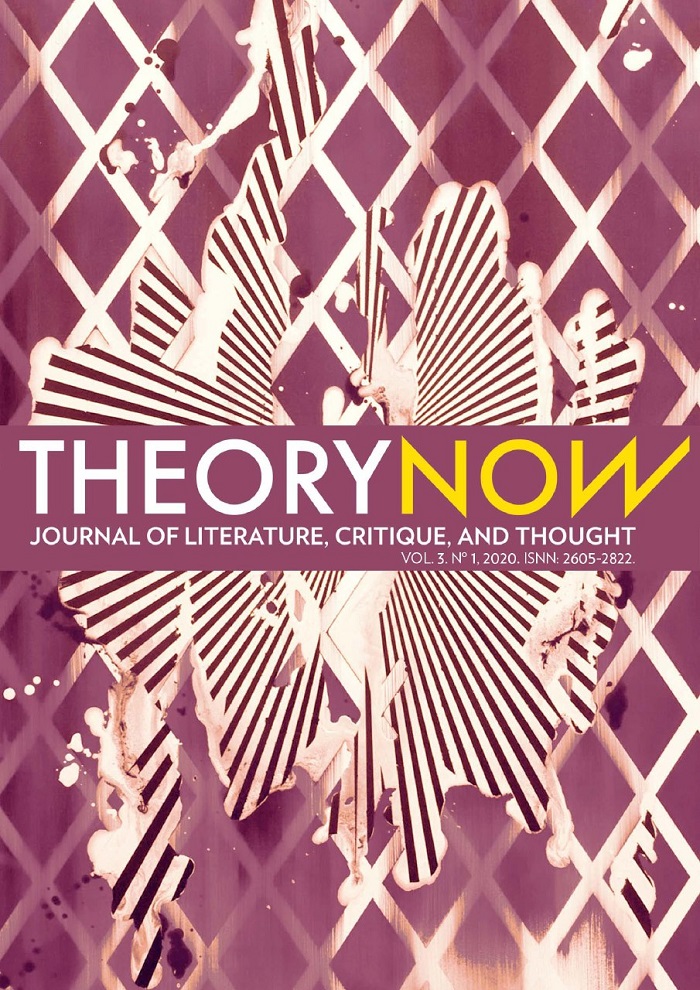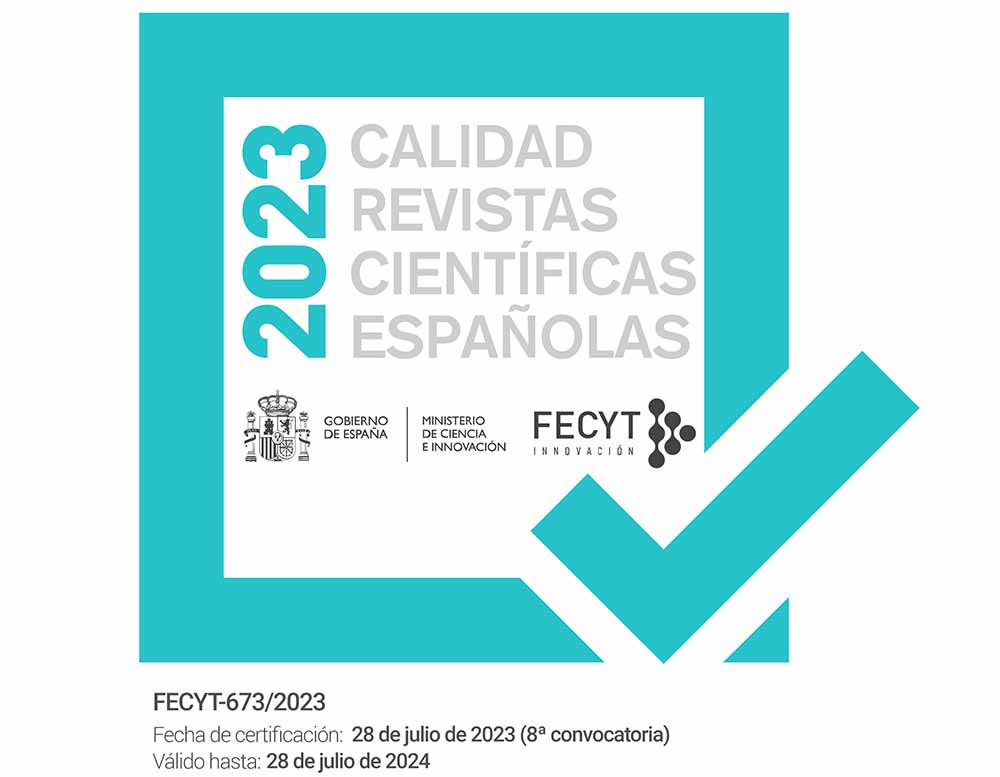The order of bodies: strategies of resistance at the intersection of discourse and body throughout the concept of heterotopia
DOI:
https://doi.org/10.30827/tnj.v3i1.11284Keywords:
Hétérotopie, Corps, Langage, Archéologie, DiscoursAbstract
During the Sixties, throughout his archaeological analysis, Foucault was interested to find out the network of statements which organises and determines the “order of things” at a given period of European culture. In the following decade Foucault’s research changed focus, as he approached to the activists gather around the prisons issue, he began to devote his attention to the genealogy of the power that controls and directs the practice of everyday life in a modern state. Foucault’s thought further changed in his lasts works, where the french philosopher tries to articulate a strategy of auto-determination of the subject, focusing on the study of ancient ars erotica. While the works on discourse analysis were based on the study of relationships between statements, showing how the language determines the representation of the world, in the inquiries on genealogy of power and in the investigation on the hermeneutic of subject, the body occupies a central place. This article aims to show the articulation of the strategy of resistance to both discourse objectivation and subject normalisation, establishing a connection under the key concept of heterotopia between foucauldian linguistic and literary analysis, and practices of re-appropriation of subject’s own body.Downloads
References
Barthes, Roland. Sade, Fourier, Loyola. Paris, Seuil, 1970.
Benavides Franco, Tulio Alexander. “El cuerpo como espacio de resistencia : Foucault, las heterotopias y el cuerpo experiencial”. Co-herencia, vol 16, no. 30, 2019, pp. 247-242.
Butler, Judith. Gender Trouble: Feminism and the Subversion of Identity. New York, London, Routledge, 1990.
Castro Orellana, Rodrigo. “Foucault y la resistencia: una gramática del concepto”. Contrastes. Revista Internacional de Filosofía, vol. XXII, no. 1, 2017.
Foucault, Michel, Raison et déraison. Histoire de la folie à âge classique. Paris, Plon, 1961.
____. Naissance de la clinique. Une archéologie du regard médical. Paris, PUF, 1963.
____. Raymond Roussel. Paris, Gallimard, 1963.
____. Les mots et les choses. Une archéologie des sciences humaines. Paris, Gallimard, 1966.
____. L’Ordre du discours. Paris, Gallimard, 1970.
____. Histoire de la sexualité I. La volonté de savoir. Paris, Gallimard, 1976.
____. Histoire de la sexualité II. L’usage des plaisirs. Paris, Gallimard 1984.
____. Histoire de la sexualité III. Le souci de soi. Paris, Gallimard 1984.
____. « Le cycle des grenouilles ». Dits et écrits 1954-1988, Daniel Defert et François Ewald (ed.), Paris, Gallimard 1994, vol. I 1954-1969, texte no. 9, pp. 203-205.
____. « La folie, l’absence d’œuvre ». Dits et écrits 1954-1988, Daniel Defert et François Ewald (ed.), Paris, Gallimard 1994, vol. I 1954-1969, texte no. 25, pp. 412-420.
____. « Pourquoi réédite-t-on l’œuvre de Raymond Roussel ? Un précurseur de notre littérature moderne ». Dits et écrits 1954-1988, Daniel Defert et François Ewald (ed.), Paris, Gallimard 1994, vol. I 1954-1969, texte no. 26, pp. 421-424.
____. « Sept propos sur le septième ange ». Dits et écrits 1954-1988, Daniel Defert et François Ewald (ed.), Paris, Gallimard 1994, vol. II 1970-1975, texte no. 73, pp. 13-25.
____. « Sade, sergent du sexe ». Dits et écrits 1954-1988, Daniel Defert et François Ewald (ed.), Paris, Gallimard 1994, vol. II 1970-1975, texte no. 164, pp. 818-822.
____. « Le sujet et le pouvoir ». Dits et écrits, Daniel Defert et François Ewald (dir.), Paris, Gallimard, 1994, vol. IV 1980-1988, texte no. 306, pp. 222-243.
____. Le corps utopique, les hétérotopies. Paris, Nouvelles Éditions Lignes, 2009.
____. « Le langage en folie ». La grande étrangère. À propos de littérature, Philippe Artières, Jean-François Bert, Mathieu Potte-Bonneville et Judith Revel (dir.), Paris, EHESS, 2013, pp. 51-70.
____. « Conférences sur Sade ». La grande étrangère. À propos de littérature, Philippe Artières, Jean-François Bert, Mathieu Potte-Bonneville et Judith Revel (ed.), Paris, EHESS, 2013, pp. 145-220.
____. Les Grecs disaient que les paroles avaient des ailes. Montreuil, Manuella éditions/Association pour le Centre Michel Foucault, 2013.
____. La sexualité. Cours donné à l’université de Clermont-Ferrand. 1964, suivi de Le discours de la sexualité. Cours donné à l’université de Vincennes. 1969, Paris, EHESS/Gallimard/Seuil, 2018.
____. « La littérature et la folie [La folie dans le théâtre baroque et le théâtre d’Artaud] ». Folie, langage, littérature, Henri-Paul Fruchaud, Daniele Lorenzini, Judith Revel (ed.), Paris, Vrin, 2019, pp. 89-109.
____. « La littérature et la folie [La folie dans l’œuvre de Raymond Roussel] ». Folie, langage, littérature, Henri-Paul Fruchaud, Daniele Lorenzini, Judith Revel (ed.), Paris, Vrin, 2019, pp. 111-125.
Gros, Frédéric, « De Borges à Magritte ». Foucault, la littérature et les arts. Actes du colloque de Cerisy – juin 2001, Philippe Artières (ed.), Paris, Éditions Kimé, 2004, pp. 15-22.
Macherey, Pierre. À quoi pense la littérature ?. Paris, PUF, 1990.
Oksala, Johanna, “Anarchic Bodies: Foucault and the Feminist Question of Experience”. Hypatia, vol. 19, no. 4, 2004, pp. 99-121.
Preciado, Paul B. Testo junkie : sexe, drogue et biopolitique. Paris, Bernard Grasset, 2008.
Revel, Judith. « Histoire d’une disparition : Foucault et la littérature », Le débat, no. 79, 1994/2, p. 65-73.
____. « La naissance littéraire du biopolitique ». Foucault, la littérature et les arts. Actes du colloque de Cerisy – juin 2001, Philippe Artières (ed.), Paris, Éditions Kimé, 2004, pp. 47-69.
Sabot, Philippe, Lire « Les mots et les choses » de Michel Foucault. Paris, PUF, 2006.
____. « Langage, société, corps. Utopies et hétérotopies chez Michel Foucault ». Materiali foucaultiani, vol. 1, no. 1, 2012, pp. 17-35.
Sforzini, Arianna. Michel Foucault, une pensée du corps. Paris, PUF, 2014.
Snell, Bruno. La découverte de l’esprit : la genèse de la pensée européenne chez les Grecs. Paris, L’Éclat, 1994.
Downloads
Published
How to Cite
Issue
Section
License
Theory Now. Journal of Literature, Critique, and Thought is an immediate open-access publication which is available at no cost for readers and authors alike. Authors are not charged any kind of fee for the editorial processing of their articles. Reading, downloading, copying, distributing, printing, searching, linking or reusing all published articles for non-commercial uses is allowed on the condition of citing the author, the journal and the editing body. All intellectual material published in this journal is protected under a Creative Commons Attribution-NonCommercial 3.0 Spain license.
Dissemination of the articles in social (Facebook, Twitter, Linkedin, etc.) and scientific networks (ResearchGate, Academia.edu, etc.), public repositories at universities and other institutions, blogs, personal or institutional websites, Google Scholar, ORCID, ResearchID, ScopusID, etc. is strongly encouraged. In all cases, the intellectual property of the articles and any possible monetary profits derived from them belong exclusively to the authors.


















